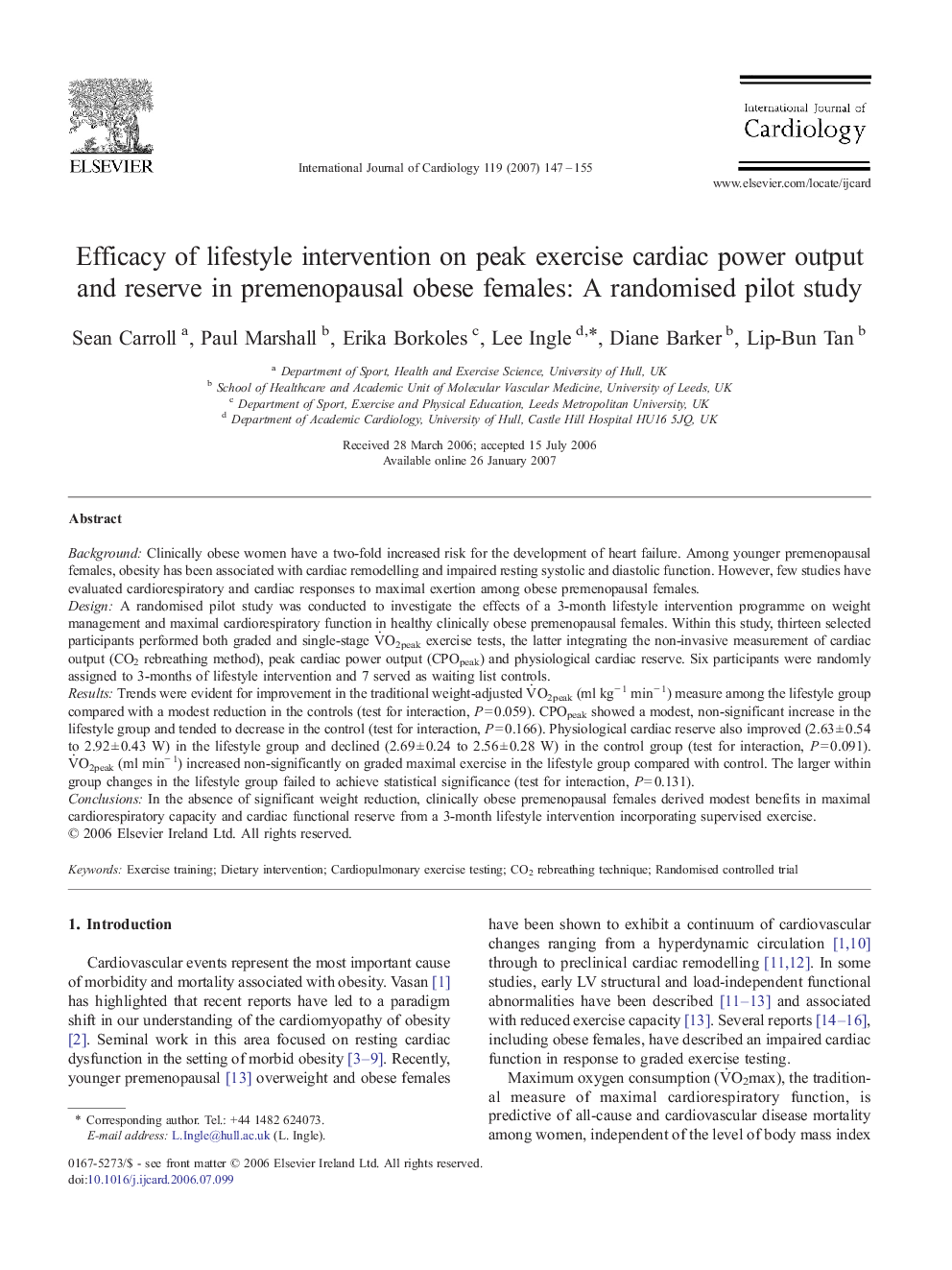| Article ID | Journal | Published Year | Pages | File Type |
|---|---|---|---|---|
| 2935153 | International Journal of Cardiology | 2007 | 9 Pages |
BackgroundClinically obese women have a two-fold increased risk for the development of heart failure. Among younger premenopausal females, obesity has been associated with cardiac remodelling and impaired resting systolic and diastolic function. However, few studies have evaluated cardiorespiratory and cardiac responses to maximal exertion among obese premenopausal females.DesignA randomised pilot study was conducted to investigate the effects of a 3-month lifestyle intervention programme on weight management and maximal cardiorespiratory function in healthy clinically obese premenopausal females. Within this study, thirteen selected participants performed both graded and single-stage V.˙O2peak exercise tests, the latter integrating the non-invasive measurement of cardiac output (CO2 rebreathing method), peak cardiac power output (CPOpeak) and physiological cardiac reserve. Six participants were randomly assigned to 3-months of lifestyle intervention and 7 served as waiting list controls.ResultsTrends were evident for improvement in the traditional weight-adjusted V.˙O2peak (ml kg− 1 min− 1) measure among the lifestyle group compared with a modest reduction in the controls (test for interaction, P = 0.059). CPOpeak showed a modest, non-significant increase in the lifestyle group and tended to decrease in the control (test for interaction, P = 0.166). Physiological cardiac reserve also improved (2.63 ± 0.54 to 2.92 ± 0.43 W) in the lifestyle group and declined (2.69 ± 0.24 to 2.56 ± 0.28 W) in the control group (test for interaction, P = 0.091). V.˙O2peak (ml min− 1) increased non-significantly on graded maximal exercise in the lifestyle group compared with control. The larger within group changes in the lifestyle group failed to achieve statistical significance (test for interaction, P = 0.131).ConclusionsIn the absence of significant weight reduction, clinically obese premenopausal females derived modest benefits in maximal cardiorespiratory capacity and cardiac functional reserve from a 3-month lifestyle intervention incorporating supervised exercise.
